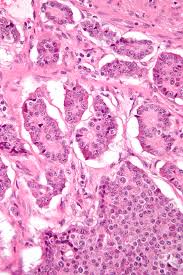28 March 2025 | Friday | News

Picture Courtesy | Public Domain
Exelixis, Inc. announced that the U.S. Food and Drug Administration (FDA) has approved CABOMETYX® (cabozantinib) for the treatment of 1) adult and pediatric patients 12 years of age and older with previously treated, unresectable, locally advanced or metastatic, well-differentiated pancreatic neuroendocrine tumors (pNET); and 2) adult and pediatric patients 12 years of age and older with previously treated, unresectable, locally advanced or metastatic, well-differentiated extra-pancreatic NET (epNET). NET are heterogeneous tumors that arise from the neuroendocrine cells of the digestive tract and other organs, such as the lung and pancreas. Most patients with advanced disease face a poor prognosis.
“The characteristics of NET vary widely from patient to patient, and very few treatment options have demonstrated the ability to improve outcomes across such a heterogeneous population,” said Jennifer Chan, M.D., M.P.H., study chair for the CABINET trial, Clinical Director of the Gastrointestinal Cancer Center and Director of the Program in Carcinoid and Neuroendocrine Tumors at Dana-Farber Cancer Institute. “It was encouraging to see that cabozantinib resulted in significant delays in disease progression in the CABINET trial—regardless of primary tumor site and grade. This FDA approval marks a meaningful advancement, which may establish an important new treatment option for patients, without limitations based on somatostatin receptor expression and functional status.”
The FDA approval—adding to five previous approvals for CABOMETYX—is based on results from CABINET, a phase 3 pivotal trial evaluating CABOMETYX compared with placebo in two cohorts of patients with previously treated NET: advanced pNET and advanced epNET. Final progression-free survival results were presented at the 2024 European Society for Medical Oncology Congress and published in The New England Journal of Medicine. In January 2025, the National Comprehensive Cancer Network Clinical Practice Guidelines in Oncology for Neuroendocrine and Adrenal Tumors were updated to include cabozantinib as a category 1 preferred regimen for the majority of well-differentiated advanced NET following specific treatments, and as a category 2A preferred regimen for other forms of advanced NET, depending on tumor grade and different requirements for prior therapy.
“As a company committed to improving the standard of care for people living with advanced, difficult-to-treat cancers, we are proud to bring CABOMETYX to patients with previously treated advanced neuroendocrine tumors,” said Amy Peterson, M.D., Executive Vice President, Product Development & Medical Affairs, and Chief Medical Officer, Exelixis. “I would like to extend our sincere gratitude to the Alliance for Clinical Trials in Oncology for conducting the CABINET trial, to the FDA for their collaboration on the review of this application and to all the patients and physicians who participated in this important study. Looking forward, we are doubling down on our commitment to the NET community as we prepare to initiate our STELLAR-311 pivotal trial examining zanzalintinib versus everolimus in the first half of 2025.”
The safety profile of CABOMETYX observed in each CABINET cohort was consistent with its known safety profile. No new safety signals were identified; however, the incidence of hypertension, regardless of treatment arm, was higher in NET patients compared to other approved tumor types. A majority of patients treated with CABOMETYX required dose modifications or reductions to manage adverse events.
© 2026 Biopharma Boardroom. All Rights Reserved.